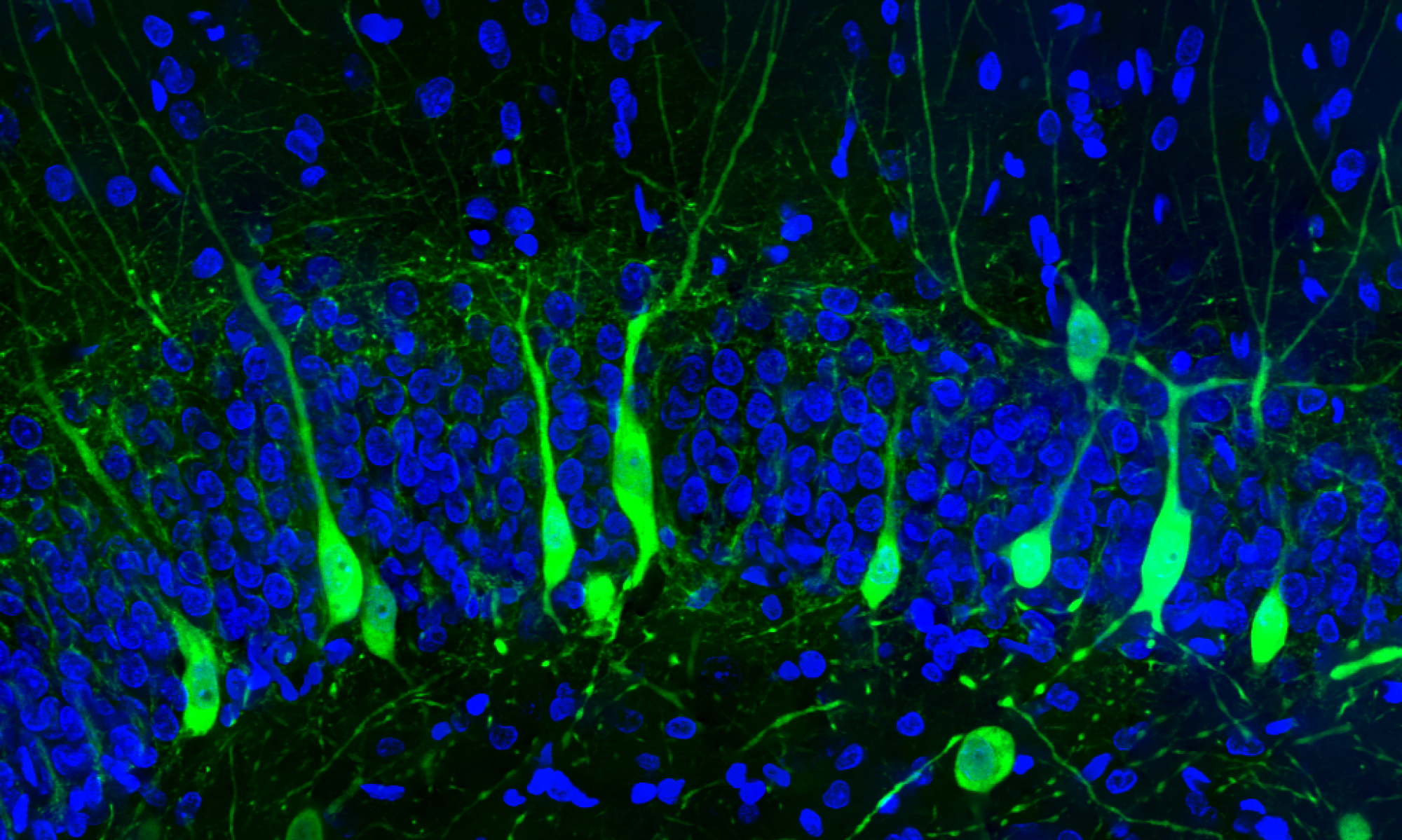Fragile X Syndrome (FXS) is a neurodevelopmental disorder caused by the loss of expression of a protein called fragile X messenger ribonucleoprotein 1 (FMRP). This protein is an important regulator of protein translation and a lack of FMRP expression can lead to learning impairments and anxiety in new and stressful social situations. Using transgenic mouse models, we investigate the effects of FXS on synaptic plasticity and processes like neurogenesis.
Current Trainees: Irene Shkolnikov (MSc. Student), Hirsh Bhatti (Undergraduate researcher).
Past Trainees: Brennan Eadie, Sonata Yau, Crystal Bostrom, Namat Majaess, Mohammed Ghilan, Luis Bettio.
Relevant Publications (Since 2017):
1. Yau SY, Bettio L, Chiu J, Chiu C, Christie BR. (2019). Fragile-X Syndrome Is Associated With NMDA Receptor Hypofunction and Reduced Dendritic Complexity in Mature Dentate Granule Cells. Front Mol Neurosci., 17(11):495.
2. Ghilan M, Bettio LEB, Noonan A, Brocardo PS, Gil-Mohapel J, Christie BR. (2018). Impaired spatial processing in a mouse model of fragile X syndrome. Behav Brain Res., 17(350):72-79.
3. Yau SY, Bettio L, Vetrici M, Truesdell A, Chiu C, Chiu J, Truesdell E, Christie BR. (2018). Chronic minocycline treatment improves hippocampal neuronal structure, NMDA receptor function, and memory processing in Fmr1 knockout mice. Neurobiol Dis., 113 :11-22.
4. Yau SY, Bostrom CA, Chiu J, Fontaine CJ, Sawchuk S, Meconi A, Wortman RC,Truesdell E, Truesdell A, Chiu C, Hryciw BN, Eadie BD, Ghilan M, Christie BR. (2017). Impaired bidirectional NMDA receptor dependent synaptic plasticity in the dentate gyrus of adult female Fmr1 heterozygous knockout mice. Neurobiol Dis., 96:261-270.
